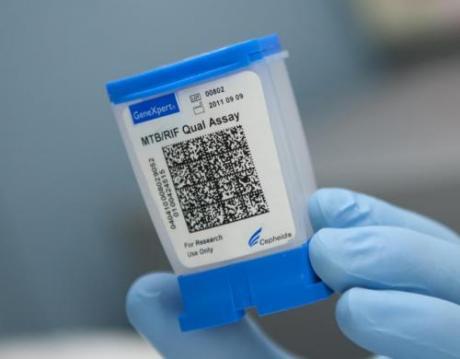REPORTS Of RESEARCH ON TWO METHODS OF RAPID TESTING FOR EBOLA
(Two items, scroll down)
MEDICAL PRESS Dec. 8, 2014
Rutgers researcher David Alland, working with the California biotechnology company Cepheid, has received a grant of nearly $640,000 from the National Institutes of Health to develop a rapid test to diagnose Ebola as well as other viruses that can cause symptoms similar to Ebola.

Researchers will adapt this cartridge, now used worldwide for tuberculosis screenings, to collect and test samples from potential Ebola patients. Credit: John Emerson
Alland, a professor of medicine and associate dean for clinical research at Rutgers New Jersey Medical School and the principal investigator of the project, says health workers would be able to take the test to small villages and other remote locations where the spread of Ebola has been especially rampant and diagnose patients where they live...
Recent Comments